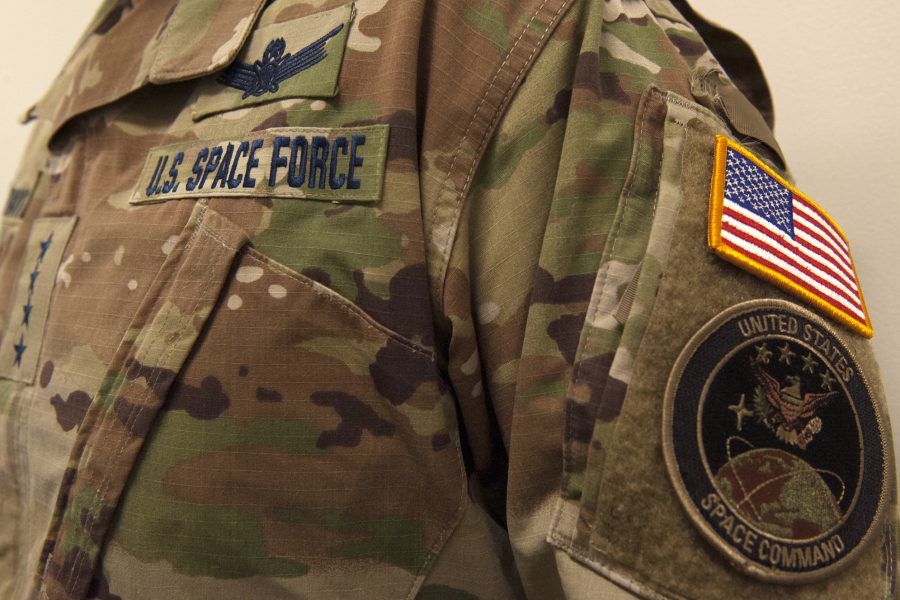Congress has backed off on requiring the Space Force to adopt naval ranks, allowing the new service to choose its own military rank system and a name for its members.
Former Navy SEAL Rep. Dan Crenshaw (R-Texas) earlier this year floated the idea of calling Space Force personnel admirals or ensigns, for example, instead of their current Air Force ranks, like general and staff sergeant. His provision landed in the House’s version of the fiscal 2021 defense policy bill now making its way through Congress.
But the Senate did not have a similar provision, and ultimately won out in stripping Crenshaw’s language from the bipartisan compromise between the two chambers.
“The conferees understand that the Space Force is currently undertaking an assessment of the future rank structure of the members of the Space Force,” according to the report accompanying the final bill, released Dec. 3. “The conferees assume the Space Force will be comprised of members transferring from all services across the department and strongly encourage the consideration of all the military services’ historic rank structures.”
The Space Force had been ready to announce its rank plans when Crenshaw’s amendment intervened, so the service waited on Congress to decide whether to keep the provision before making any major announcements about its future.
Lawmakers relented after the Space Force’s top general discussed the idea with some members. Gen. John W. “Jay” Raymond, the Chief of Space Operations, appreciates the attention from Capitol Hill but prefers lawmakers let the service choose its own ranks.
“We’re working very closely to develop the rank structures that we think are important for our force going forward,” Raymond told Air Force Magazine in October. “Some of these culture pieces are things that we want to get right. We want to give an opportunity for the folks that are in our service to have a voice.”
Once the Secretary of the Air Force picks ranks for Space Force officers and enlisted members, the House and Senate Armed Services Committees want a report with those details at least 15 days before the changes take effect.
If the service opts for ranks that mirror the name of Space Force members—as do ranks like senior airman and airman first class—Congress’s move opens the door to decide on that name. The Space Force unofficially calls its people “Space Professionals” as it figures out whether to go with “sentinel,” “guardian,” or another moniker.
“We’ve been very deliberate in our efforts to make sure that these things that we do, either the seals or the flags or the naming convention, mean something to the space professionals,” Raymond said.
Lawmakers also blocked the Pentagon from creating a Space National Guard or Space Reserve without a study that shows doing so is the best way to accomplish the Space Force’s mission. The final bill bans the Department of the Air Force from transferring Air National Guard space personnel to other parts of the Air Force, or relocating or eliminating any space elements of the Air Force reserve component.
By the end of March 2021, Congress wants the Defense Secretary to launch a study to plan the best way forward for a reserve component. The congressional defense committees ask for recommendations on how the Space Force might use full- and part-time employment to “best leverage the human capital of the Space Force, including a single integrated force.”
Space Force officials envision a reserve component that may be more fluid and offer different options from others like the Air National Guard and Air Force Reserve, hoping more flexibility will attract members and allow for broader professional development.
The final version of the 2021 defense policy bill is expected to pass both chambers of Congress and must still earn the President’s approval to become law.
